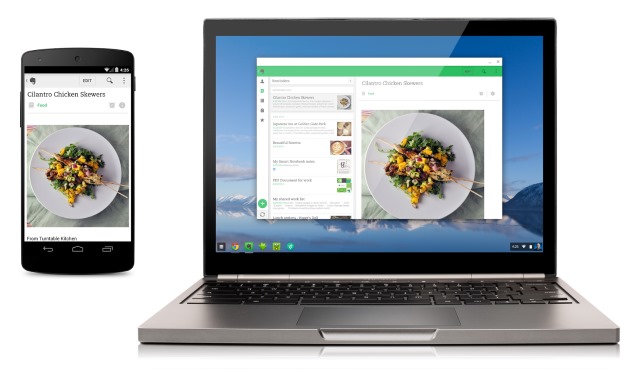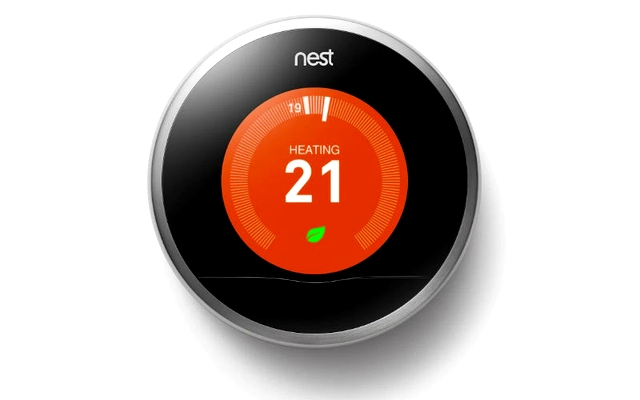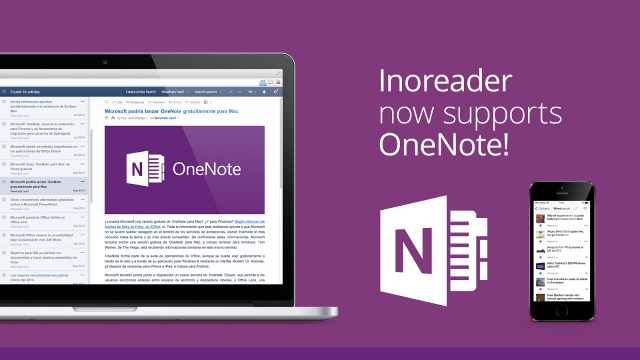
Get $100,000 worth of Google Cloud Platform credit for your startup
Having a startup business is all the rage nowadays; it is as trendy as a Pumpkin Spice Latte. Actually, if you go to Starbucks, you can probably overhear chatter from hipsters about some lamebrain scheme to launch a business. Of course, the business must have a wacky name to make it cool; throw a bunch of consonants (vowels are so passé) in a hat, pull out 5 and that's the new business name.
Despite the deluge of posers thinking they will be the next Mark Zuckerberg, there are legit people with sound business ideas too. These up-and-coming startups need all the help they can get. Today, Google announces that some startups can receive $100,000 worth of Cloud Platform credit.

Yahoo resisted NSA Prism requests -- US government threatened $250,000 daily fines
It's transparency time once again! After Edward Snowden opened the can of NSA surveillance worms, internet users' collected attention has been focused on online privacy. We still don’t know the full extent of the monitoring that took place, but more information continues to leak out. All of the big names -- Google, Apple, Microsoft, Facebook, and the rest -- have slowly trickled out little snippets about government data requests. A new blog post from Yahoo's general counsel Ron Bell sheds further light on the resistance the company put up against requests for data.
Just like Google and Microsoft, Yahoo is keen to let it be known that it tried to stick up for the privacy rights of its customers. A new cache of documents -- stretching to War And Peace baiting 1,500 pages -- from seven years ago shows just how much of a fight Yahoo tried to put on its users' behalves. Way back in 2007, the US government started to request information about users from a number of online companies. Yahoo was one of the companies who -- initially, at least -- refused to comply, and tried to fight the government in court.

Google Drive and Docs gain accessibility options for visually-impaired users
With a visual impairment, using any software or service can be anything from tricky to impossible. Windows and other operating systems have long included features that make them easier for blind and partially sighted people to use, and now Google is adding similar playing-field-levelling features to Google Drives and Docs. While traditional desktop software has been quick to adopt new methods of opening up to as many people as possible, the same cannot be said of online tools -- Google is looking to change that.
Starting today, Docs, Sheets, Slides, Drawings and Forms all feature support for Alt tags for images, as well as better text-to-voice conversions. Tweaks include support for vocalized spelling correction suggestions, as well as the ability to listen to comments that have been added to shared documents. The arrival and departure of collaborators something else that's now spoken aloud. Changes are also to be found in the many keyboard shortcuts -- additional shortcuts are now available to provide access to a wider range of tools and option than before, including the editing of charts and pivot tables.

Android apps break out of the small screen and jump to Chromebooks
A lot of Google services have transitioned to gain the title of "apps", and the same is true of a large number of extensions for the Chrome browser. These online tools are essentially cross-platforms apps that work identically Now Google is taking another step to break out of the confines of making apps available to a single platform. Android apps are, quite rightly, associated with smartphones and tablets, but now a small number of these mobile apps are finding their way onto Chromebook.
The (usually) cheap and cheerful Windows laptop/Mac Book alternative (did someone say netbook?) can now start to benefit from a handful of well-known titles from Android devices. It is very early days but as of today there are four Android apps available to Chromebook owners -- Duolingo, Evernote, Sight Words, and Vine -- but we can expect to see this list expand over time. The quartet of crossover apps were introduced today by Ken Mixter and Josh Woodward. A short blog posts penned by the pair explains that the Chromebook support comes thanks to the App Runtime for Chrome (Beta) project.

Nest grows its home automation integration, Dropcam now in use
Home automation and the Internet of Things have become popular topics today. Users either love it or fear it, the latter thanks to very real security problems which have been discovered. Nest is no stranger to problems, thanks to its Protect issue from not long ago, but that hasn't stopped the company from moving forward, adding further integration.
The latest move is to partner with more home automation products in an effort to make everything play nicely together. The company, known for its smart thermostat, has joined forces with Whirlpool, Jawbone and LIFX under a program it calls "Works with Nest". It has also been working with home automation makers to get better integration.

5 million Google Account credentials reportedly leaked online [Updated]
According to the IBTimes, around five million Google Account credentials have been leaked online by hackers, with around 60 percent of the compromised accounts judged to still be active.
A user called "tvskit" made the announcement on the Bitcoin Security forum along with a link to the alleged email list. The majority of the leaked accounts seem to belong to Russian users.

Google Street View visits Egypt, tours pyramids and more
The Pyramids of Giza, the Great Sphinx, there's a lot to see in Egypt. However, it may not be a place you wish to travel to right at this moment, though there are no official warnings against it from the State Department. Fortunately you don't need to make the trip now, thanks to Google.
Street View, the ever-growing portfolio of images from the Google Maps team, has visited the North African nation and captured the sites in great detail. Included are all of the things that drive tourists to this location -- Pyramids of Giza, the Great Sphinx, ancient burial grounds and more.

Google Chrome is to blame for a massive increase in online ad blocking
A shocking new report looking at online advertising shows that there has been a huge increase in the number of internet users making use of ad blocking tools. The report describes ad blocking as having gone mainstream, but it also suggests that the loss of ad revenue threatens the life of many websites.
Pagefair worked with Adobe putting together the report and found that 4.9 percent of internet users make use of ad blockers, including more than a quarter (27.6 percent) of those in the US.

Calling all RSS fans! Inoreader now supports Microsoft OneNote
They said RSS was dead, but when Google decided to close the door on Google Reader, there was a vocal clamoring of disapproval. A flood of tools popped up to filled the vacuum left behind by the absence of Google's service and one that quickly grew in popularity is Inoreader -- thanks, at least in part, to the fact that it can be customized to look and work in much the same way as Google Reader.
No RSS reader worth its salt would be complete without offering integration with a number of other online services of course, and now InoReader benefits from OneNote support.

Uber, self-driving cars and Google
This is a topic I've briefly discussed on Twitter and then again on Bernard Leong's podcast, but I think it deserves a deeper look. Many are excited about the potential of Uber integrating with self-driving cars. But in my opinion, self-driving cars could be disruptive to Uber's current business model. Let's take a look at a few facets of Uber's business model and gauge the potential impact of Google's self-driving cars.
As I've mentioned previously, Uber is a platform that connects transportation providers (or drivers) with potential customers. Self-driving cars completely remove drivers from this equation and could force Uber to own and manage their own fleet. With their current model, Uber operates with "zero capex" and their marginal cost for adding supply is effectively zero. But by owning self-driving cars, this marginal cost becomes a meaningful amount, i.e. the cost of each vehicle. With this revised cost structure, the value of Uber's business model changes completely.

Google Chrome to effectively kill SHA-1 -- will make web more secure
Even if all people are created equal, power is not distributed equally; big players direct the world. In other words, if a company or person has enough power, they can influence policy and change, while the little guys tend to follow their lead. Sure, it may be a cynical point of view, and not an absolute, but as a little guy, it seems to be rather constant.
Today, one of those big companies, Google, is influencing the internet yet again, by effectively killing SHA-1. How is it doing this? Well, the search giant is declaring SHA-1 to no longer be safe, so starting with Chrome 39, sites that use it will no longer be considered totally secure. Since the company's browser has such a large install-base, this should cause webmasters to abandon SHA-1 at a faster rate. Is Google correct to do this?

Google lays out a roadmap for Android Wear, music and more on the way
Smartwatches seem to be a polarizing force in the marketplace these days; love or loathe them, they seem here to stay. So far, when it comes to Google's Android Wear, we've seen three devices debuted and another on the way, all of which should appeal to those looking to this market as the future.
Now, Google has expressed its software plans for the future of its wearable platform. Included in this roadmap is both music and new watchfaces, which should appeal to potential customers, though the hardware already boasts thousands of apps.

Google’s Android One rollout in India sets off alarm bells at Samsung
Google and Samsung look all set to battle it out for India’s burgeoning smartphone market after three Indian phone producers signed up to the Android One initiative that targets growth at the low end of the emerging market.
Micromax Infomatics, Karbonn Mobile and Spice Group have become the first manufacturers to sign up to Google’s new initiative that wants to drive an improvement in quality that will spark demand for low-end Android handsets.

Google to cough up $19 million in kids' in-app purchases case
Google is to pay out at least $19 million to Android users whose children were tricked into making expensive in-app purchases on smartphones and tablets. The Federal Trade Commission has been investigating mobile purchases for the last three years, and Apple agreed at the beginning of the year to a settlement. Amazon was also investigated and plans to appeal against the charges. In agreeing to repay the money, Google has effectively admitted that apps available in Google Play may be deceptive.
The brunt of the FTC case centers around the idea that it was not made clear to parents that their children would be able to make purchases within apps without authorization. Many of these in-app purchases are to be found in games where players are encouraged into parting with money in return for extra lives, game power-ups, or to unlock new levels. The FTC complained that since 2011 Google had indulged in unfair practices that left parents with bills of hundreds of dollars.

Using an older browser version? Google wants you to move on
Google has begun displaying old versions of its search page to users of out-of-date web browsers.
Over the previous weekend, many people reported seeing the 2013 version of the Google homepage when using an older version of certain browsers.